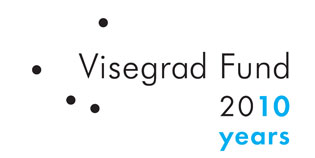Institutional background
 The most important financing institution in Hungary is the Hungarian Motion Picture Foundation (MMKA - http://www.mmka.hu/) which distributes the overwhelming majority of public funding intended for film production and distribution. However in 2010 major changes occurred with the appointment in March of a new president to the head of the institution. Zoltán Kőrösi started his job with an in-depth analysis of the financial situation of the institution which revealed huge gaps. The decision of the new management to follow a much more disciplined financial approach severlt affected severely film production in 2010, and according to estimations its effects will be even more apparent in 2011.
The most important financing institution in Hungary is the Hungarian Motion Picture Foundation (MMKA - http://www.mmka.hu/) which distributes the overwhelming majority of public funding intended for film production and distribution. However in 2010 major changes occurred with the appointment in March of a new president to the head of the institution. Zoltán Kőrösi started his job with an in-depth analysis of the financial situation of the institution which revealed huge gaps. The decision of the new management to follow a much more disciplined financial approach severlt affected severely film production in 2010, and according to estimations its effects will be even more apparent in 2011.
The results of the Parliamentary elections that took place in April produced a major political shift in Hungary. In the new governmental system the Ministry of Culture has been replaced by the Ministry of National Resources, where culture is represented only by an under-secretary. Due to the restructuring of public financing a major part of funding has been blocked, which made MMKA unable to pay even those productions which already had signed and approved contracts.
Due to the difficult financial situation many productions (and coproductions) had to be stopped or postponed to 2011. This means that approximately 15 new films will be ready to be presented at the Hungarian Film Week which takes place in February 2011. The result of this situation will be felt especially in 2012, as many films had been finished or reached the final phase before funding was blocked.
Hungary encourages international coproductions by a generous tax rebate system which allows producers to write off 20-25% of production spend in Hungary on their taxes.
Festivals
The major festival of Hungarian films is the Hungarian Film Week (www.hungarianfilmweek.com ) which is usually held every year in the first week of February prior to the Berlinale. The new management of MMKA announced important changes regarding this traditional event: they plan to make the festival international by opening it to foreign films and by creating an international jury, and they would like to include animation which until now had its own separate festival.
The second biggest festival in audience size is the Titanic International Film Festival (http://www.titanicfilmfest.hu/) held also in Budapest in the beginning of April. The festival presents approximately 60 international films from all to an audience of 15,000 people.
Several smaller, but professionally important festivals take place in the country, most important of these being the Jameson Cinefest (www.cinefest.hu) held in Miskolc in mid-September and CinePécs which is organized at the beginning of October in Pécs. Short-, documentary and experimental films are presented at the Mediawave International Film and Music Festival (www.mediawavefestival.hu/ ) which takes place in Szombathely in early May.
Box-office
More people are buying more expensive tickets to fewer films - this is the short summary of the analysis of Hungarian box office trends of the first half of 2010. The number of admissions has grown compared to the same period of the last year, but a considerable part of this figure is composed by the huge success of Avatar, which alone sold more than 1 million tickets. The number of total admissions has slightly grown (3.96 million versus 3.88 million), the income has considerably grown (4.77 billion HUF versus 3.99 billion) compared to the same period of the previous year.
However the share of Hungarian films decreased in 2010: in 2009 almost 10% of the tickets were sold by Hungarian productions, while in the first half of 2010 it averaged only 6%. Usually every year there are 2 or 3 Hungarian films which pass 100,000 admissions; in 2010 there was only one, Dénes Orosz's Polygamy, which in fact premiered in December 2009.
Prize winners
International festival success has been attained this year by the two productions showcased already in Cannes. Kornél Mundruczó's Tender Son - The Frankenstein Project was selected to the main competition in Cannes and in September it has been presented in Hungarian cinemas too. The second film of Ágnes Kocsis, Adrienn Pál participated in the Un Certain Regard program in Cannes and won prizes worldwide, including the first Film New Europe/Visegrad Prix for best coproductin in Pecs. Benedek Fliegauf's film Womb was presented in Locarno before successfully touring the international festival circuit.
The highly anticipated film from Béla Tarr, The Horse of Turin - which was planned to be finished in 2009 - has been postponed again to 2011.
Television
Pubcaster MTV doesn't play as large a role as a backer of feature films as in most other European countries, but reduced funding from commercial broadcasters as well as cuts at MTV has meant that Hungarian producers have had a tough year in terms of film financing. Duna TV, the other public television, started to gain more and more the favour of politicians which meant that its financial situation became much better than in previous years. It produces documentaries and short films, but lately has spent substantial amounts on television series.



















